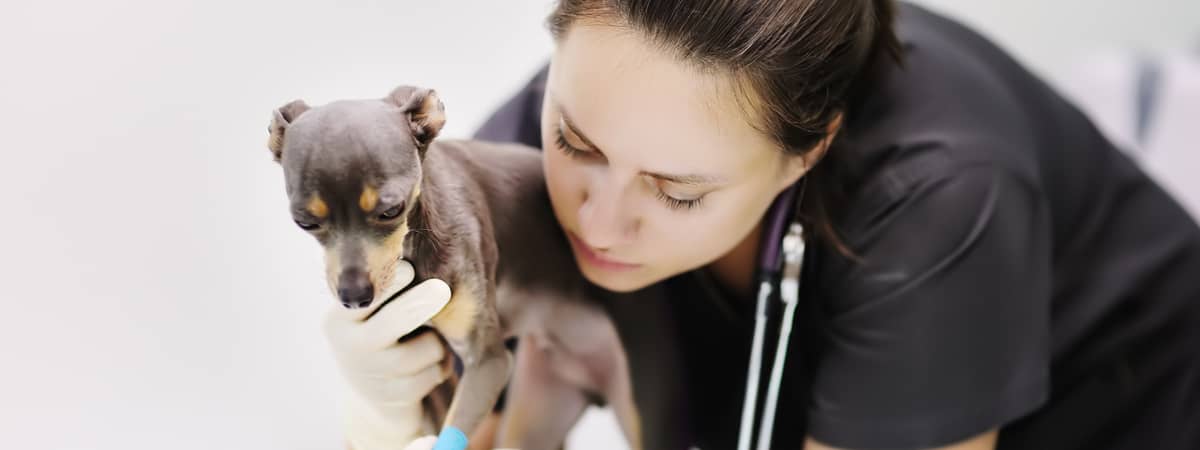Do you love working with animals? Do you want to learn how to assist in their medical care, improve their quality of life, and promote animal health? If so, the veterinary technology program is right for you!
Veterinary assistants and registered veterinary technicians are an essential part of the animal health care team. While working under the supervision of veterinarians, they perform several types of tasks including laboratory procedures, surgical and anesthesia assisting, digital imaging (including x-ray technology), dental procedures, medical nursing, emergency care, and veterinary office procedures. In addition to learning these essential techniques in the veterinary technology program, students will also learn to assess animal disease, its causes, preventions, and treatments.
Allan Hancock College's veterinary technology program effectively prepares students for the modern workforce. The program introduces technical skills and veterinary medical concepts necessary to pursue a career as a veterinary assistant and meets the educational requirements of the California Veterinary Medical Board (VMB) for veterinary assistants to become registered veterinary technicians (RVT).
Hancock’s strong partnerships with local veterinarians provide students valuable connections to fulfill the practical work experience requirement through internship opportunities.
This program will help you to:
- understand scientific principles associated with animal medical, surgical, and dental care
- safely perform veterinary radiology
- understand and employ the proper techniques for performing veterinary laboratory procedures used in clinical settings
- effectively communicate during the performance of veterinary office procedures
- practice techniques for safe handling of animals under veterinary care
- learn practical solutions for the prevention and control of animal disease
Degrees and Certificates Offered
Each program has unique requirements. The order in which you take courses may affect your completion time. Visit the links below to view the program requirements and a general semester-by-semester course schedule.
Certificate of Achievement- Veterinary Technology
To view all available degrees and certificates visit the Allan Hancock College course catalog.
What's New!
Internship Program
Gain valuable work experience with one of our veterinary partners. Internships are only available to students currently enrolled in the Veterinary Technology certificate program.
VT 300 Introduction to Veterinary Technology
Get an overview of the field of animal health care and the Veterinary Technology program at AHC. This 2-unit class is open to all students and is an introduction to the certificate of achievement program.
Programs you may also be interested in exploring...
Contact Information
Coordinator and Professor
Amy Rice, RVT
805-922-6966 ext. 3480
amy.rice@hancockcollege.edu


